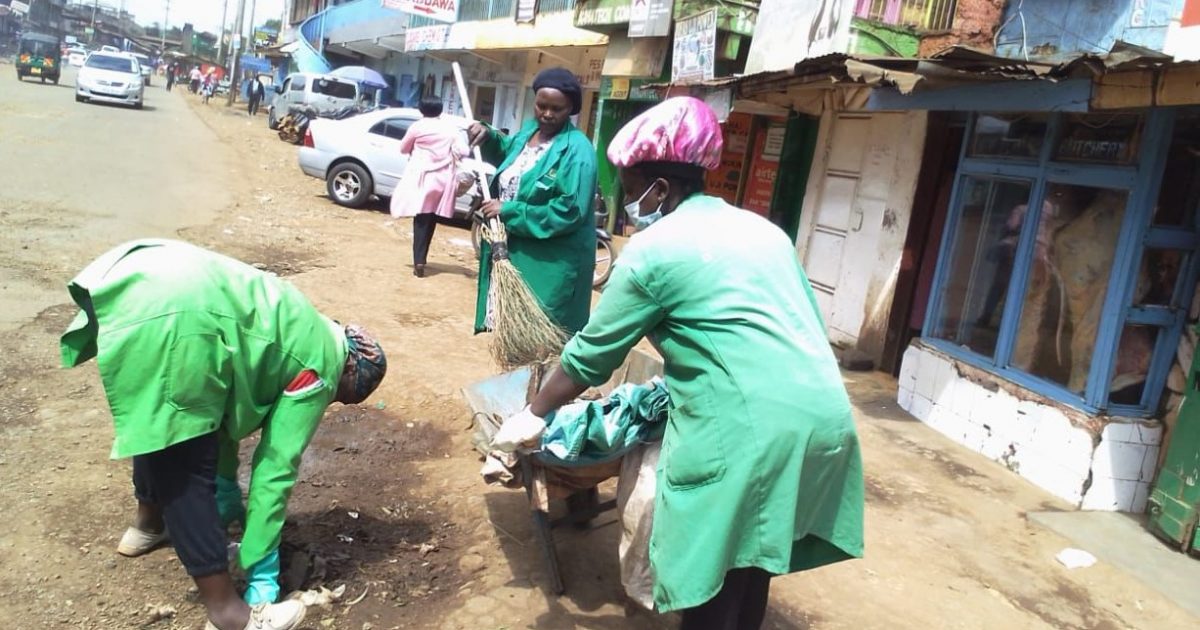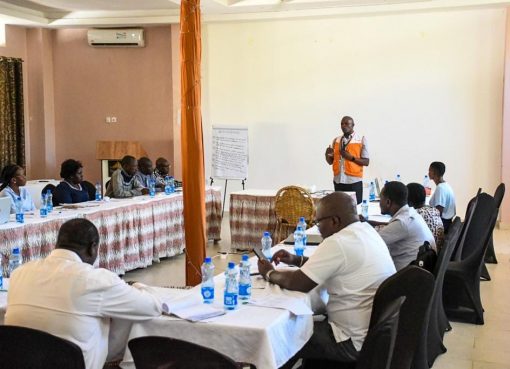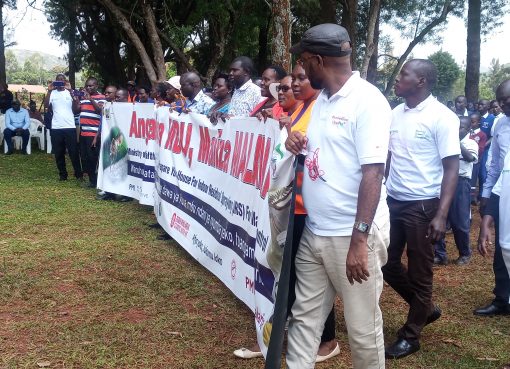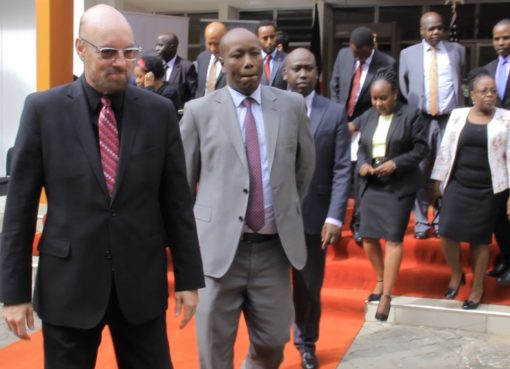Kiambu County has been working with various stakeholders to address environmental challenges that have been affecting the community and development.
Kiambu is a vibrant county known for agriculture, lush landscapes, and biodiversity, but it faces challenges of balancing urban development with environmental conservation and local livelihoods.
Speaking to KNA, the County Director of NEMA, John Maniafu, said they were working towards ensuring that some of the critical issues impacting the community’s future are addressed.
“We are currently decommissioning quarries in Juja and Thika that have been left open and turned into makeshift habitats for hyenas and working together with the Kenya Wildlife Services to eradicate the problem,” he added.
“Hyenas are predators. When they attack, they can injure or even kill people,” Maniafu stated.
To tackle this, a meeting has been scheduled with the Kenya Wildlife Service to devise strategies for eradicating the problem.
Additionally, Maniafu noted that rapid urbanisation in areas like Juja, Thika, and Kiambu town has outpaced the development of adequate wastewater treatment facilities, hence the issue of effluent discharge that looms large across the region.
To effectively monitor and control pollution, Kiambu is developing a framework to identify and engage with polluters with the aim of mapping out pollution sources and working collaboratively with industries to reduce their environmental impact, he said.
“We need to ensure that the industries within Kiambu are responsible for their effluent discharge,” Maniafu stated, saying many septic tanks were insufficient for the volume of waste generated, and this has resulted in pollution of rivers and streams.
He further underscored the need for improved infrastructure and investment in sustainable wastewater treatment technologies to mitigate this issue, adding that as NEMA, they were collaborating closely with the Water Resources Authority to conserve them, particularly in sensitive areas like Ondiri Swamp in Kikuyu.
“In order to promote responsible agriculture practices, we have implemented riparian pegging to establish boundaries for wetlands, and community education is prioritized. Monitoring efforts, including sampling of water sources, are being conducted to prevent chemical runoff from agricultural activities,” Maniafu said.
Another significant concern for Kiambu residents is noise pollution that has been worsened by the proliferation of entertainment venues along the Thika Superhighway.
Maniafu pointed out that while regulating noise pollution falls under the county’s purview, many citizens still sought assistance from NEMA, and thus collaborative efforts were underway to ensure soundproof buildings for the entertainment venues so that they could coexist peacefully with the nearby communities.
The NEMA Director stressed that a sustainable Waste Management Act has been enacted to address the growing solid waste crisis by prompting a comprehensive waste management system that encourages source segregation in households and offices to distinguish waste streams like papers, kitchen scraps, and refuse.
The key to the Act, he added, is the establishment of producer responsibility organisations, which hold manufacturers accountable for the lifecycle waste of their products to foster collaboration with waste management entities and prompt a circular economy.
“The county government is responsible for creating waste management facilities and ensuring proper waste regulation. While NEMA develops guiding policies and with this Act, we aim for a cleaner environment through community accountability and effective recycling practices,” the NEMA boss said.
Maniafu noted that as urban growth presents challenges in waste management, Kiambu County is also in the process of establishing a modern landfill and materials recovery facilities. These efforts aim to address the persistent issue of illegal dumping and improve solid waste management practices across the county.
The County Executive Committee member for Water, Environment, Energy, and Natural Resources, David Kuria, echoed the NEMA Director`s sentiments and discussed initiatives aimed at securing water sources, particularly riparian zones.
Speaking to KNA, he said that the county has implemented a programme to protect riparian areas alongside rivers and is working closely with local water companies.
“We are marking our riparian areas and collaborating with farmers to plant water-friendly trees,” he stated. This effort is complemented by a legal framework that enforces compliance.
On sewage management, Kuria clarified that water companies were primarily responsible for maintaining sewage systems, with the government supervising their actions. “It’s clear that as a water company, you are supposed to maintain sewage systems,” he said.
The CECM further pointed out the necessity of proactive communication with road development teams to prevent damage to sewage systems during construction of roads.
The CECM also detailed the county’s approach to garbage management in local markets, noting that the county operates over 50 trucks daily in order to transport waste to designated dump sites for sorting and recycling.
“Markets belong to the County, and we manage that,” he stated, emphasising the importance of designated garbage collection areas equipped with skip bins.
He added that they were also working with partners who want to utilise organic waste through promoting compost and recycling of the drained waste.
Kuria highlighted key partnerships aimed at promoting compost and recycling of the drained waste, adding that they have reached the community through awareness, educating them on proper waste disposal practices.
“We have put mechanisms in place for communication by engaging the communities and opening up ways of getting feedback on the environmental management system, and residents can now be able to report their concerns,” he said, noting that the initiative involves local government officials, environmental officers, community members, and NEMA.
During the recent Mazingira Day, communities in Kiambu were engaged through tree planting and cleanup activities, thus fostering a collective effort to safeguard the environment, with NEMA’s Director urging the residents to make use of their established incident desk set up for reporting environmental issues that would be addressed by relevant county officers.
Lucy Wambui Njenga, a Kiambu resident, commended the County government and NEMA for their efforts in keeping the environment and markets clean.
She, however, pleaded for more bins to be put up along the roads to encourage pedestrians to dispose of waste papers and containers, especially the plastic water bottles, to enhance cleanliness.
By Magdaline Wangechi





